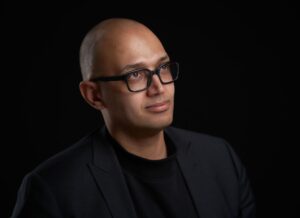
Why Skills-First Leadership Is Replacing the Ivy League Playbook in the C-Suite
The old prestige pyramid—where Ivy League degrees and blue-chip consulting backgrounds paved the way to the CEO seat—is cracking.

October 13, 2021: -The electric vehicle unit of embattled Chinese property developer Evergrande said its first cars would roll off the production line in the coming year.
The debt-laden company said that it met with suppliers and the local government in Tianjin, the production base is, and pledging to push forward with mass production of its Hengchi-branded cars.
Shares of China Evergrande New Energy Vehicle Group were up above 10% in morning trade but pared few of those gains. They closed almost 4.5% higher in Hong Kong.
Evergrande is not delivered a single vehicle to customers, but it has lofty ambitions. It pledged annual production and sales of 1 million cars by 2025.
Tianjin’s local government said that it would coordinate with financial institutions to support Evergrande and help the company achieve mass production.
Evergrande’s Group struggles to pay off $300 billion of liabilities, and it is the world’s most indebted property developer and has missed several bond payments. Fears that the company could default have roiled global markets as investors are worried it may have contagion effects and hurt the global economy. Confidence in Evergrande has plummeted.
Last month, Evergrande NEV said they delayed to suppliers of its electric vehicle unit and that few projects across the group have been suspended. Evergrande said it looks for new investors.
The Chinese firm said it had tested various models of its Hengchi car throughout the year.
But the automaker entered an extremely competitive electric car market in China and will face upstarts like Nio and Xpeng and established players such as BYD and Tesla.
On Monday, U.S.-listed start-up Xpeng said it had produced 100,000 cars six years after the company launched.

The old prestige pyramid—where Ivy League degrees and blue-chip consulting backgrounds paved the way to the CEO seat—is cracking.

Loud leaders once ruled the boardroom. Charisma was currency. Big talk drove big valuations.

But the CEOs who make history in downturns aren’t the ones with the deepest cuts

Companies invest millions in leadership development, yet many of their best executives leave within a few years. Why?

The most successful business leaders don’t just identify gaps in the market; they anticipate future needs before anyone else.

With technological advancements, shifting consumer expectations, and global interconnectedness, the role of business leaders

Maushum Basu is a visionary leader who inspires his team with a clear, compelling purpose. Unafraid to take calculated risks, he understands that growth often stems from change and innovation. His deep commitment to both Airia Brands, Inc.

When speaking with Martin Paquette, one thing is immediately apparent: he’s honest. His transparency is refreshing. While many shy away from such vulnerability, Paquette sees it as a force to reckon with. The incredible emotional intelligence speaks to years of looking within—it’s also what allows him to acknowledge his mistakes gracefully and use them as opportunities to innovate.

Marina Charriere, CEO of Star Drug Testing Services, Star Drug Testing Services (Windsor Park), and First Defence Face Masks go hand in hand. Star is a drug and alcohol testing facility, and First D F M is a face mask company.

Lejjy Gafour, CEO, CULT Food Science Corp. Lejjy is a self-taught entrepreneur and experienced company operator who made his start creating opportunities at the young age of 14, and he has been working, leading, and building businesses ever since.


Leave us a message
Subscribe
Fill the form our team will contact you
Advertise with us
Fill the form our team will contact you